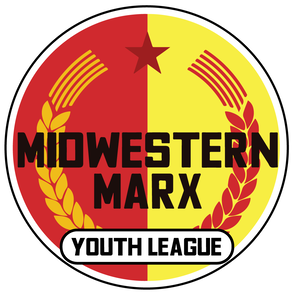|
Within the last few decades, we have seen the emergence of neoliberal feminism, feminism that is seemingly revolutionary yet maintains the institution of capitalism. Though completely contradictory to each other, for most, feminism and capitalism come hand in hand. Feminism is to many, “the advocacy for equality between the sexes,” and in a lot of ways that translate to diversifying the workplace and politics. But this is antithetical to any sort of real change, extending power to a few oppressed people will not liberate a majority of the oppressed. Covertly, this form of feminism has been more effective in harming the communities it claims to protect than actually protecting them. It has given us the illusion of progress when in reality it hasn’t even achieved the bare minimum for social change. In fact, it has been overwhelmingly successful in forcing the complacency of oppressed people; because finding a solution to their suffering was never the goal. To a certain point, it has convinced us that a woman in power is the solution to patriarchal oppression. Amongst the empowerment narratives pushed by neoliberal feminists we have only seen the continued normalization of the exploitation and oppression of proletarian women, especially trans women and women of color. The normalization and even encouragement towards the sex trade is one example that comes to mind. Participation in the sex trade is in almost every circumstance the result of economic desperation and when someone has to rely on the trade for their primary source of income, which tends to be the case for most involved, the ability to consent is removed from the situation. Trans women and women of color have been disproportionally affected by the sex trade with 40% of black women and 24% of Latinx women having been reported as victims of sex trafficking (Banks and Kyckelhahn). Meanwhile, roughly 10.8% of transgender people have reported participating in the sex trade with transwomen being twice as likely to participate than transmen (Fitzgerald). Neoliberal feminism has conditioned us to ignore the material conditions that requires individuals to become involved in the sex trade in the first place. It has become so ingrained in our collective psyche to the point of idolization of the trade. That is the genius behind neoliberal feminism. It creates empowerment in being the exploiter and in being the exploited. Such as the recent phenomenon of things like “OnlyFans.com” and the massive support from neoliberal and liberal feminists alike. While it has made it possible for participation in the sex trade to be safer for those involved (which is objectively a good thing), it is still extremely exploitive and predatory. Simply put, creating a better alternative to a bad and exploitive thing does not make it no longer bad or exploitive. Whether advertently or inadvertently, support of these industries by neoliberal and liberal feminists is less successful in demystifying the stigma towards individuals in the sex trade and more so successful in promotioting the commodification of individuals bodies. As well as promoting the capital interests of these industries. But this is not at all to say that participating in the sex trade is shameful, entirely nonconsensual, or entirely unempowering to every individual. Although, we have seen from the perception of the sex trade through the neoliberal gaze not only a lack of comprehensive understanding of these industries but a lack of intersectional understanding of feminism as a whole. Having an intersectional approach to feminism is vital as feminism without intersectionality can quickly become a tool for enforcing white power. Like I said earlier, feminism is widely recognized as “the advocacy for equality between the sexes.” What this misses however is how women can be discriminated against for various identities beyond gender. Without acknowledging this and acting according to this fact, your advocacy is not for all women but for one type of woman. This type of woman oftentimes being cisgender, heterosexual, able-bodied, upper-class, and white. When the bulk of feminist advocacy is not intersectional, it results in upholding and enforcing white power structures rather than aiding in ending the oppression faced by all women. Through the advocacy of “white feminism” as it is commonly referred to and neoliberal feminism, the oppression of proletarian women persists. In a lot of ways, neoliberal feminism and white feminism go hand in hand to perpetuate oppression. But how can intersectional feminism work to alleviate and even eradicate these forms of oppression? By viewing feminism through an intersectional lens and understanding how someone may be discriminated against because of various identities, we can begin to understand that feminism is not and can not be just one thing. There is no one solution to the inequalities women face, but by pushing forward the voices that experience these overlapping modes of discrimination, recognizing the historical context associated with these issues, recognizing how these marginalized groups are at the highest risk for experiencing natural disasters, health issues, poverty, gender-based violence, etc, and looking at how our system reproduces these inequalities can help us approach these issues in a way that can actually create positive change. The work of Angela Y. Davis is a great example of exploring intersectional feminism; her historical and dialectical approach to exploring feminism is effective in helping us understand how it is deeply rooted in white supremacy. Her analysis of the women’s suffrage movement can really be applied here. “Whether the criticism of the Fourteenth and Fifthteenth Amendments expressed by the leaders of the women’s rights movement was justifiable or not is still being debated. But one thing seems clear: their defense of their own interests as white middle-class women--in a frequently egotistical and elisist fashion--exposed the tenuous and superficial nature of their relationship to the postwar campaign for Black equality” (Davis). Their position was not to push for equality of all oppressed people or all oppressed women, in fact. Rather their position was one heavily rooted in white supremacy and held bourgeois interests, choosing to mostly separate themselves from issues that were not those of the white middle-class woman. To this day many white feminists have not far separated themselves from that position. Neoliberal Feminism and white feminism have created a barrier for progression and embracing intersectional feminism can help demystify many of the inequalities perpetuated in our current systems. Understanding intersectionality and deconstructing much of the racist ideology of these forms of feminism is crucial to truly transform our society for the better. Without looking at feminism through an intersectional lens, being critical of these forms of feminism, and being anti-capitalist in your approach, then feminism will continue to truly be antithetical to real progress. Work Cited Banks , Duren. “Characteristics of Suspected Human Trafficking Incidents, 2008-2010.” Bureau of Justice Statistics, Apr. 2011, www.bjs.gov/content/pub/pdf/cshti0810.pdf. Women, Race and Class, by Angela Y. Davis, Vintage Books , 1983, pp. 76–76. Fitzgerald, Erin. Meaningful Work: Transgender Experiences in the Sex Trade. National Center for Transgender Equality, Dec. 2015, Meaningful Work-Full Report_FINAL_3.pdf AuthorTara Thomason is pursuing an bachelor’s in Political Science and Gender Studies. Their main interests are police and prison abolition, decolonization, black liberation, women liberation, and the global proletarian struggle. Much of their work goes towards organizing mutual aid efforts in my community and educating on Marxism.
0 Comments
Leave a Reply. |
Details
AuthorWrite something about yourself. No need to be fancy, just an overview. Archives
February 2023
Categories
All
About the Midwestern Marx Youth LeagueThe Midwestern Marx Youth League (MMYL) was created to allow comrades in undergraduate or below to publish their work as they continue to develop both writing skills and knowledge of socialist and communist studies. Due to our unexpected popularity on Tik Tok, many young authors have approached us hoping to publish their work. We believe the most productive way to use this platform in a youth inclusive manner would be to form the youth league. This will give our young writers a platform to develop their writing and to discuss theory, history, and campus organizational affairs. The youth league will also be working with the editorial board to ensure theoretical development. If you are interested in joining the youth league please visit the submissions section for more information on how to contact us!
|


 RSS Feed
RSS Feed